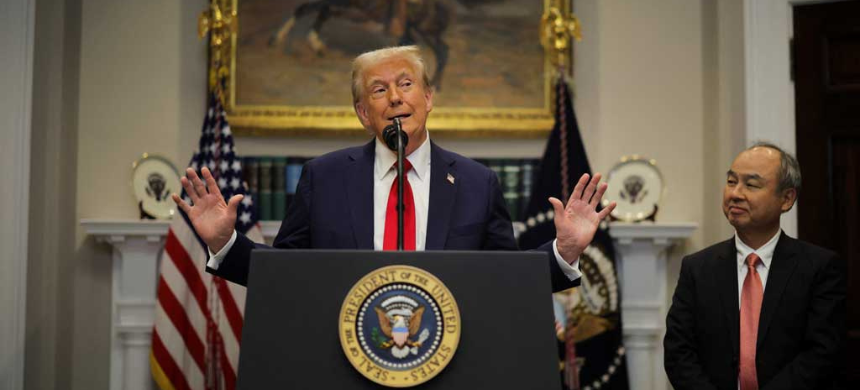U.S. President Trump Threatens Tariffs on EU and China, Citing Fentanyl Trafficking Concerns
On Tuesday, U.S. President Donald Trump announced plans to impose tariffs on the European Union and threatened a 10% punitive duty on Chinese imports, citing the trafficking of fentanyl into the U.S. through Mexico and Canada.
Speaking to reporters at the White House, Trump reiterated his administration’s firm stance on trade and border issues. His latest comments follow a brief pause after taking office without immediately implementing the tariffs he had promised during his campaign.
The president criticized the European Union, describing their trade practices as unfair. “The European Union is very, very bad to us. So they’re going to be in for tariffs. It’s the only way… you’re going to get fairness,” Trump remarked.
Tariff Threats on Canada, Mexico, and China
Trump also warned of potential tariffs against Canada and Mexico unless they take significant action to curb illegal migration and fentanyl trafficking. White House trade adviser Peter Navarro explained that the proposed tariffs aim to pressure these countries into addressing the issue, stating, “300 Americans die every day from fentanyl overdoses.”
The administration has set a new February 1 deadline to decide on imposing 25% tariffs against Canada and Mexico, as well as duties on Chinese imports. This comes as Trump signed a trade memorandum on Monday, ordering comprehensive reviews of trade deficits, unfair practices, and currency manipulation, with recommendations expected by April 1.
The memorandum also targets loopholes in duty-free exemptions, which Trump claims facilitate the import of illicit fentanyl precursor chemicals from China.
Read More: President Biden Sets TikTok Ban Deadline in US
Mixed Responses to Tariff Proposals
The markets briefly rallied on Tuesday, with the S&P 500 index hitting its highest level in a month. However, experts warn that Trump’s escalating rhetoric on tariffs against the EU and China could dampen investor optimism.
Mexico and Canada struck measured tones in response to the tariff threats. Mexican President Claudia Sheinbaum emphasized her country’s sovereignty and reiterated that the U.S.-Mexico-Canada Agreement (USMCA) remains unchanged until 2026.
Farmers in the U.S., particularly corn growers, expressed concerns over potential retaliatory duties from Mexico and Canada, which are major importers of U.S. corn and ethanol. “We’re just hoping that we can come out of this without losing our exports,” said Kenny Hartman Jr., president of the National Corn Growers Association.
Moving Forward
While Trump’s administration seeks to use tariffs as leverage to address broader trade and border concerns, experts believe the president is adopting a more measured approach to solidify the legal basis for his actions. Trade analyst William Reinsch noted, “He’s figuring out how to best use his leverage to get what he wants.”
As the February 1 deadline approaches, it remains to be seen whether Trump’s aggressive tariff strategy will yield concessions from the EU, China, and neighboring countries or spark broader trade tensions.











